
by Editor | Jun 13, 2022 | Reports, Event Updates
Tri Thuc Publishing House in Vietnam have just published a Vietnamese translation of Remaking the World – Toward an Age of Global Enlightenment.
Former Prime Minister of Israel Ehud Barak will travel to Vietnam in August, 2022 and will attend the High-Level Dialog discussing this book in Ha Noi. Governor Michael Dukakis, Chairman of Boston Global Forum and professors from Harvard and MIT will join this High-Level Dialog.
The book was published in English in July 2021, then introduced and discussed at the Policy Lab, co-organized by Club de Madrid and Boston Global Forum September 7-9, 2021, then at a special session at the Riga Conference 2021. Recently on April 29, 2022, at Loeb House, Harvard University, pioneering concepts of this book were applied to develop the Rebuilding Ukraine Program as a present to President Zelensky and all Ukrainian people, recipients of the 2022 World Leader for Peace and Security Award.
The Vietnamese edition was translated by Mr. Le Anh Duc, Editor of Vietnam Report, and Mr. Pham Trong Nghia, Vietnamese National Assembly Member, and revised and introduced by Professor Nguyen Chu Hoi, Vietnam National Assembly Member, and Professor Hoang Kiem, Founder and the first Dean of the Computer Science School of Vietnam National University at Ho Chi Minh City.

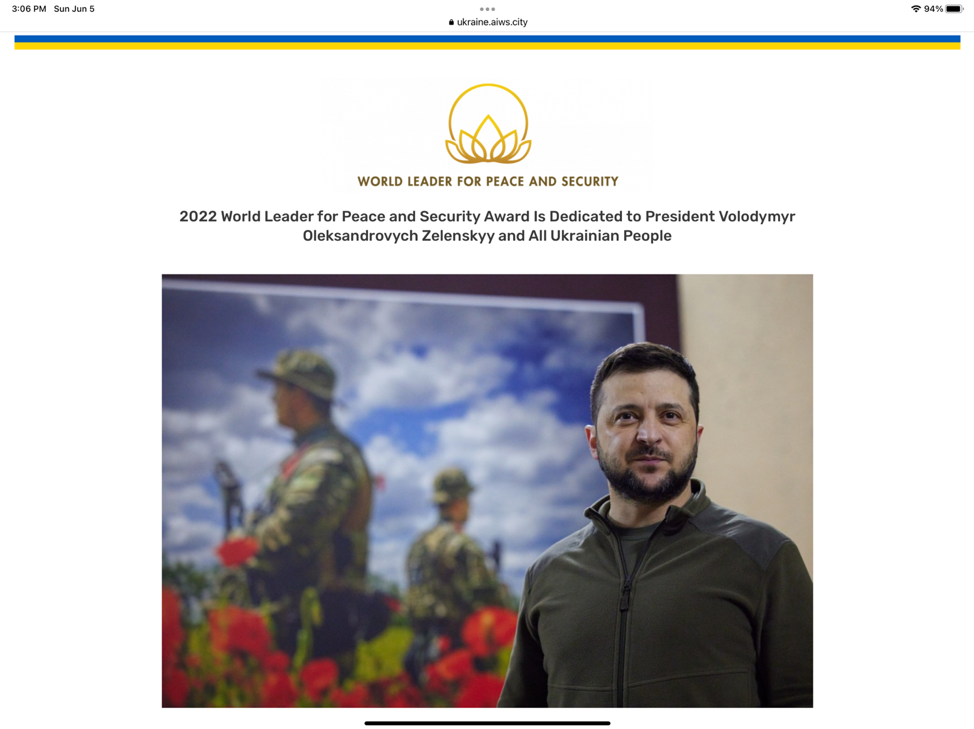
by Editor | Jun 6, 2022 | AIWS City, AIWS City and Rebuilding Ukraine, News, AIWS and the Age of Global Enlightenment
Boston Global Forum (BGF) announced the Rebuilding Ukraine Program in the conference honoring President Zelensky and all Ukrainian people as 2022 BGF World Leader for Peace and Security.
BGF and Michael Dukakis Institute honored Ukraine by “Remaking Ukraine – Toward an Age of Global Enlightenment”. In this Program, AIWS City for Ukraine is an important role:
- Apply model concepts of AIWS City to rebuild Ukrainian cities as smart cities.
- AIWS City is a smart digital city with distinguished communities.
- Connect historical, traditional cities as Boston, New York, Washington DC, San Francisco, LA, Chicago, Berlin, Munich, Frankfurt, Stockholm, Rome, Athens, Vienna, Paris, London, Madrid, Barcelona, Copenhagen, Edinburg, Amsterdam, Brussels, Prague, Dubrovnik, Zurich, Geneva, Jerusalem, Tokyo etc. to the AIWS City for Ukraine.
- Build a digital platform and components of AIWS City for Ukraine: Digital Home, Art and Cultural Institutions, Smart Digital and AI University, Innovation Ecosystem, Smart Healthcare Centers, Markets.
- Every citizen has one digital home, bring gem cities of the world to Ukraine
- Build a “smart” government aided by AI and Digital technologies, guided by concepts of AIWS Government
- Develop the next generation digital public infrastructure, modeled after Estonia and other leading digital government nations
- AIWS Citizen and Information Ecosystem for Ukraine
BGF calls on companies to support Ukraine digital platform and hosting for AIWS City for Ukraine.
AIWS City for Ukraine is led by Governor Michael Dukakis, Chair of BGF, Nguyen Anh Tuan, CEO of BGF, Harvard Professors Thomas Patterson, David Silbersweig, MIT Professors Alex Sandy Pentland, Nazli Choucri, Former Japanese State Minister Yasuhide Nakayama, Former Prime Minister of Bosnia and Herzegovina Zlatko Lagumdzija, and EY Global Tax Innovation Leader Jeff Saviano.
Please contact to support Ukraine at the email [email protected]


by Editor | Jun 6, 2022 | Reports, News, World Leaders in AIWS Award Updates, AIWS and the Age of Global Enlightenment
As computing systems become more actively involved in societally essential areas such as healthcare, education, and government, it is crucial to accurately forecast and comprehend these interventions’ causal repercussions. Traditional machine learning algorithms based on pattern recognition and correlational analyses are insufficient for decision-making without an A/B test.
To fill this gap, Microsoft researchers created a platform that executes the process of causal inference analysis from start to finish to assist data scientists in better understanding and applying causal inference. They developed the DoWhy in 2018. Since then, the library has been doing precisely that, cultivating a community committed to using causal inference principles in data science. “DoWhy” is a Python package that attempts to encourage causal thinking and analysis, many ways machine learning libraries have done for prediction. DoWhy provides a four-step interface for causal inference that focuses on clearly modeling and confirming causal assumptions as feasible.
Traditional machine learning approaches aim to anticipate a result. Consider a public utility business that wants to minimize their customers’ water use using a marketing and incentives campaign. The success of a rewards program is difficult to assess since any drop in water consumption by participating consumers is masked by their decision to engage in the program.
Suppose we see that a rewards program member uses less water than others. How do we know if the program motivates their lower water consumption or if consumers who were already expecting to cut their water usage choose to join it? Given information about the determinants of consumer behavior, causal approaches may separate confusing variables and determine the impact of this incentive program.
This collaboration between Microsoft and AWS applies concepts of Causal Inference and The Book of Why: The New Science of Cause and Effect of professor Judea Pearl. He is a Global Enlightenment Leader.
Boston Global Forum honored Professor Judea Pearl with the 2020 World Leader in AIWS Award.

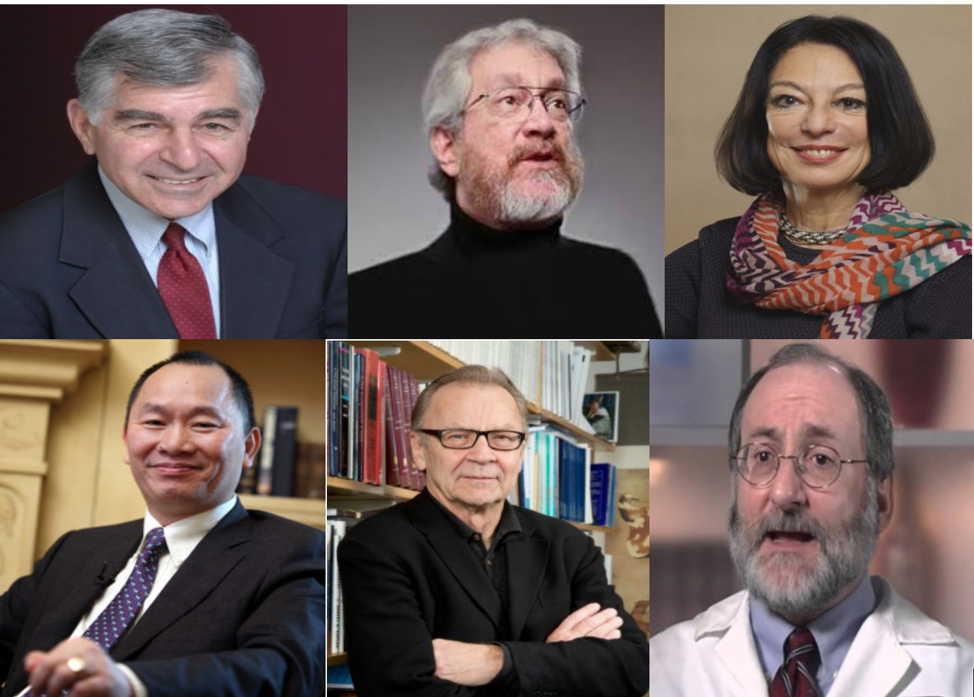
by Editor | Jun 6, 2022 | Global Alliance for Digital Governance, Global Law and Accord on AI and Digital, News
The Ministry of Electronics and Information Technology (MeitY) has issued a draft National Data Governance Framework to mobilise citizen non-personal data for use by public and private entities in a bid to improve services.
The draft policy proposes launching a non-personal data-based India datasets programme. It also addresses the methods and rules to ensure that non-personal and anonymised data from both the government and private entities are safely accessible by the research and innovation ecosystem.
The Minister of State (MoS) for Electronics and Information Technology, Rajeev Chandrasekhar, stated that the National Data Governance Framework will appeal to artificial intelligence (AI) startups, AI research entities, and government departments. He called it an important piece of policy framework that will help the country achieve its target to be a US$1 trillion digital economy. The policy will apply to all government departments and entities. Its rules and standards will be applicable to all data collected and managed by any government entity.
The framework will also accelerate the digitisation of government operations. Currently, digital government data is stored, managed, and accessed in differing and unpredictable ways across different government entities, weakening the efficacy of data-driven governance and preventing an innovative and seamless ecosystem of data science, analytics, and AI. According to the draft, the power of data must be harnessed for more effective digital governance and innovation.
https://opengovasia.com/india-issues-new-draft-data-governance-framework/
Through this Draft Data Governance Framework, Boston Global Forum (BGF) recognizes that the Indian Government follow the standards of the Social Contract for AI Age.

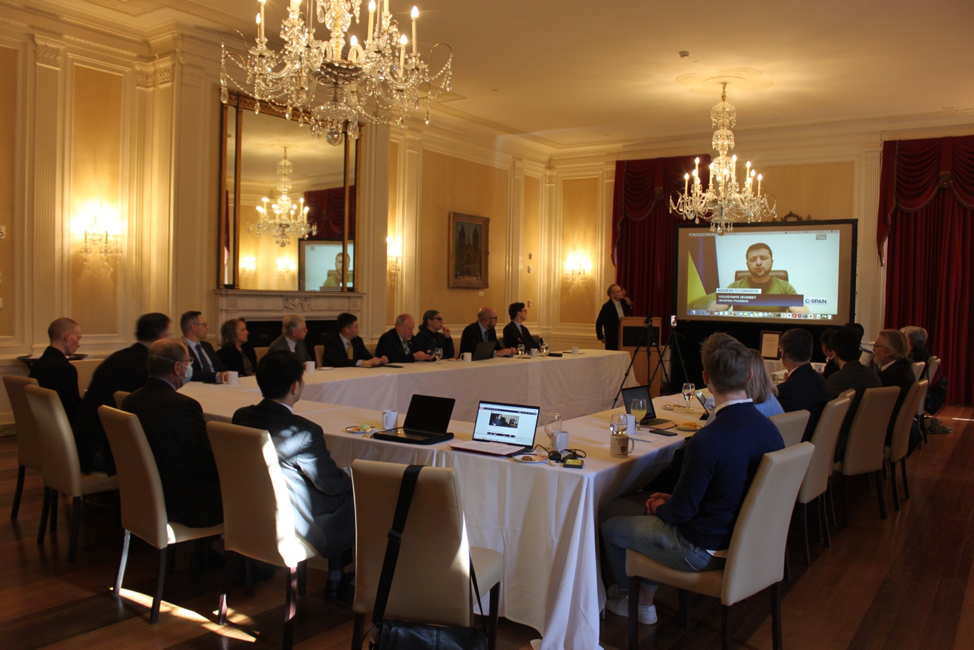
by Editor | Jun 6, 2022 | Global Law and Accord on AI and Digital, Global Alliance for Digital Governance, News
The United States has been working to codify the National Artificial Intelligence (AI) Initiative that focuses on six strategic pillars: improving AI innovation, advancing trustworthy AI, creating new education and training opportunities through AI, improving existing infrastructure through new technologies, facilitating federal and private sector utilization of AI to improve existing systems, and promoting an international environment that supports further advances in AI. In April 2022, the U.S. Department of Commerce, and the National Institute on Standards (NIST) announced members of the inaugural National Artificial Intelligence Advisory Committee (NAIAC), which will be tasked with advising the Biden administration on how to proceed with national AI governance efforts. At their first meeting on May 4, 2022, the NAIAC discussed the use of AI pertaining to U.S. competitiveness, issues related to workforce, and whether there is adequate national oversight of AI systems. Taken together, the objectives of the national AI initiative and the creation of the NAIAC will ensure strategic and timely approaches to the design and deployment of autonomous systems, as well as further establish national norms.
The Global Alliance for Digital Governance (GADG) considers the US as a major player in global digital governance, in maintaining and protecting democratic values based on standards and values of Social Contract for the AI Age. GADG will work with the Indian Government to synthesize the capacity of two countries in Global Digital Governance.
The original article was posted at the Brookings Institute.

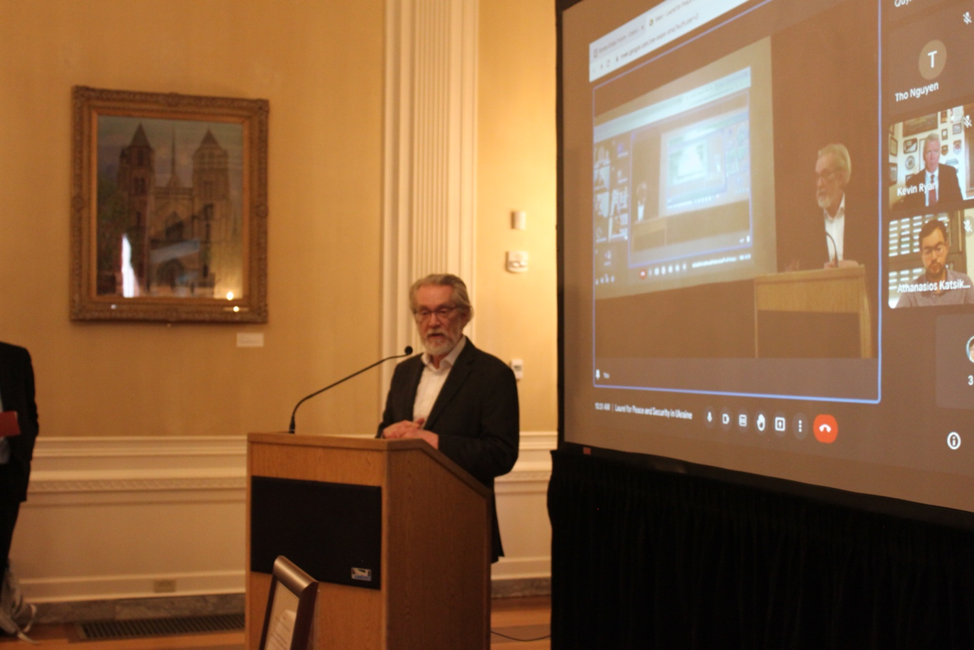
by Editor | Jun 5, 2022 | Event Updates
Leaders of Boston Global Forum will speak and discuss at a special event at MIT on June 27, 2022.
The Digital Bretton Woods Conference is co-hosted by the World Bank, MIT Connection Science, EY and Boston Global Forum.
The conference will discuss the following topics and themes:
Perspective on the Role of Digital Transformation
Growth Strategies in the Digital Economy
- Growth strategies for the new digital economy
- Advanced analytical platforms for better economic policy making
- Promoting private sector innovation and digital ecosystems
- Role of disruptive new technologies in promoting growth
Investing in Foundational Digital Public Infrastructure
- Enabling seamless global trade through digitization
- Transforming tax and finance systems and processes
- Digital identity as foundation for a government data strategy
- The role of advanced technologies
Governance of Multistakeholder Systems
- Economic foresight: anticipating the next crisis
- A new era for technology policy, regulation, and incentives
- New organizational structures for multi-party technology systems
- Computational law and regulatory certainty
AIWS Government for Ukraine

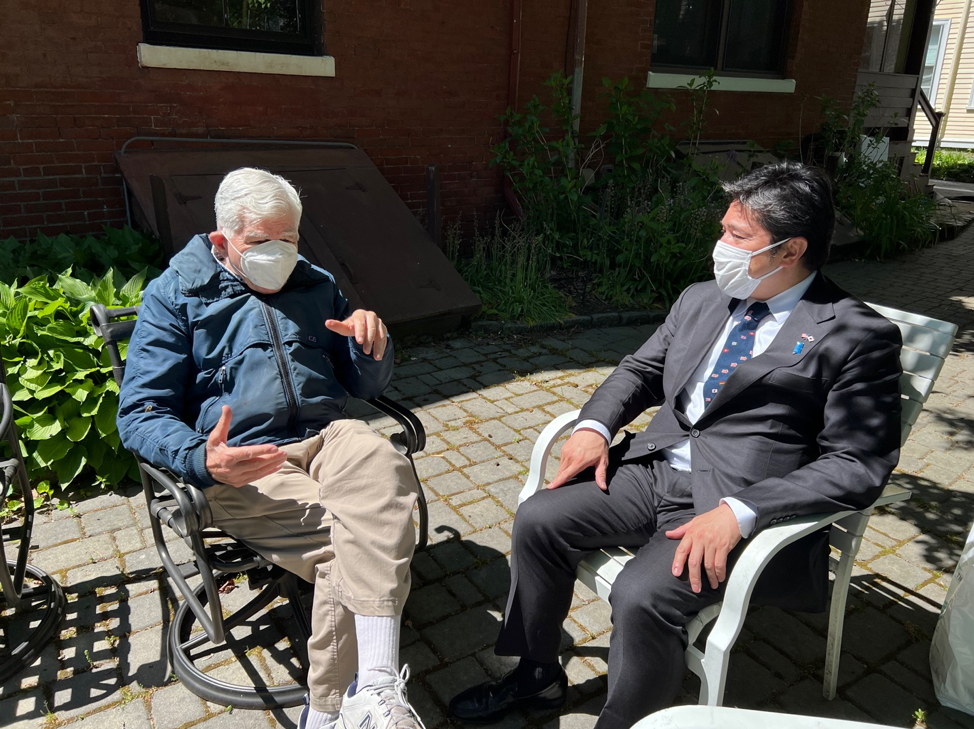
by Editor | May 29, 2022 | Global Alliance for Digital Governance, News
On May 24, 2022 in Boston, Former Japanese State Minister of Defense Yasuhide Nakayama met and discussed with Governor Michael Dukakis, Co-founder and Chair of the Boston Global Forum (BGF), Mr. Nguyen Anh Tuan, Co-founder and CEO of BGF, BGF Board Members: Harvard Professor Thomas Patterson, MIT Professor Nazli Choucri, and Harvard Professor Stephen Walt.
He officially joined the Global Alliance for Digital Governance (GADG) as the leader of GADG in Japan and Taiwan.
Mr. Nakayama has contributed significantly since 2019. He is an enthusiast mentor of the AI World Society Innovation Network (AIWS.net).



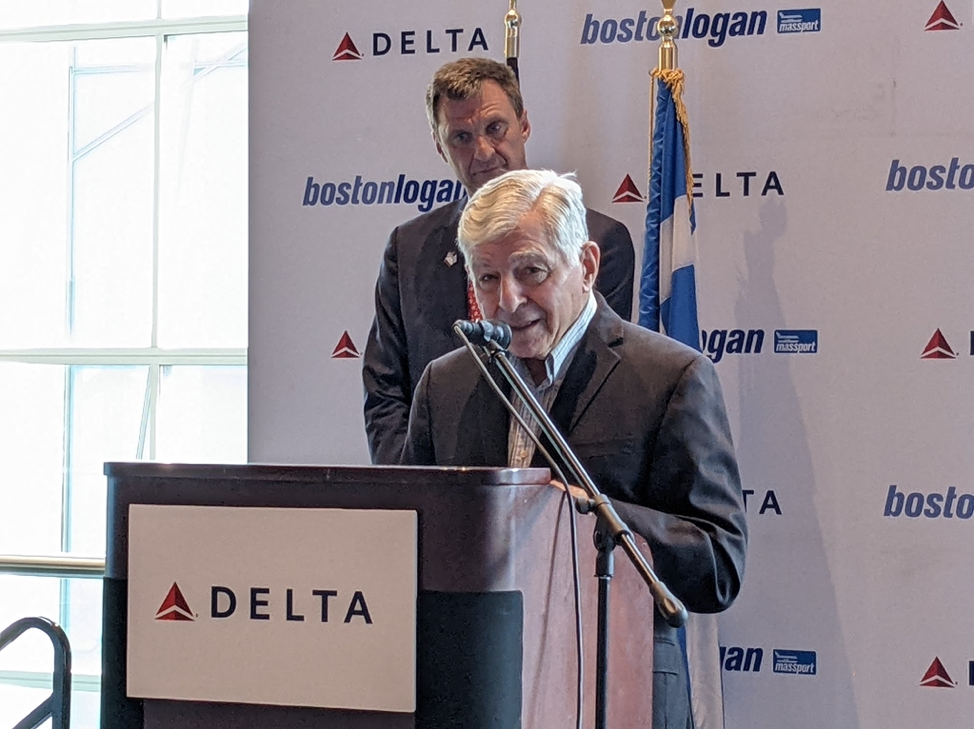
by Editor | May 29, 2022 | Global Alliance for Digital Governance, News
In a festive climate, with a hint of blue and white, the echo of the Greek national anthem, traditional dances from different parts of Greece and a reception with Greek dishes was celebrated at Boston’s Logan International Airport the launch of the company see Delta Airlines of the Boston-Athens direct air connection, which is the first after 25 years connecting the two cities directly.
Former Massachusetts Governor Michael Dukakis, Co-founder and Chair of the Boston Global Forum, hailed the historic New England homogeneous development that brings Greece closer to Boston. The event was greeted by the Metropolitan of Boston, Mr. Methodius and Chairman of the Board of Directors of Massport Airport, expatriate Lew Evangelidis who mentioned with passion his Greek roots from the Epirus region.
The Consul General of Greece in Boston, Stratos Efthymiou, thanked the staff of Boston and Athens airports and praised the work of the staff of the Consulate General work team who have been volunteering for four years for a direct flight launch, mobilizing all stakeholders and focusing their efforts in the areas of market research, data analysis, public relations, marketing and airline development.
In the presence of Massachusetts travel agents, Delta Airlines Vice President Chuck Imhof had presented the company’s strategy in detail at a special event at the Consulate General, while at yesterday’s event at the airport Boston-based Delta local director Pratik Patel stressed importance of the new direct flight.
The Delta flight will run three times a week, Wednesday, Friday and Sunday, from both Athens and Boston. The plane on the first direct flight took off at 100% fullness.



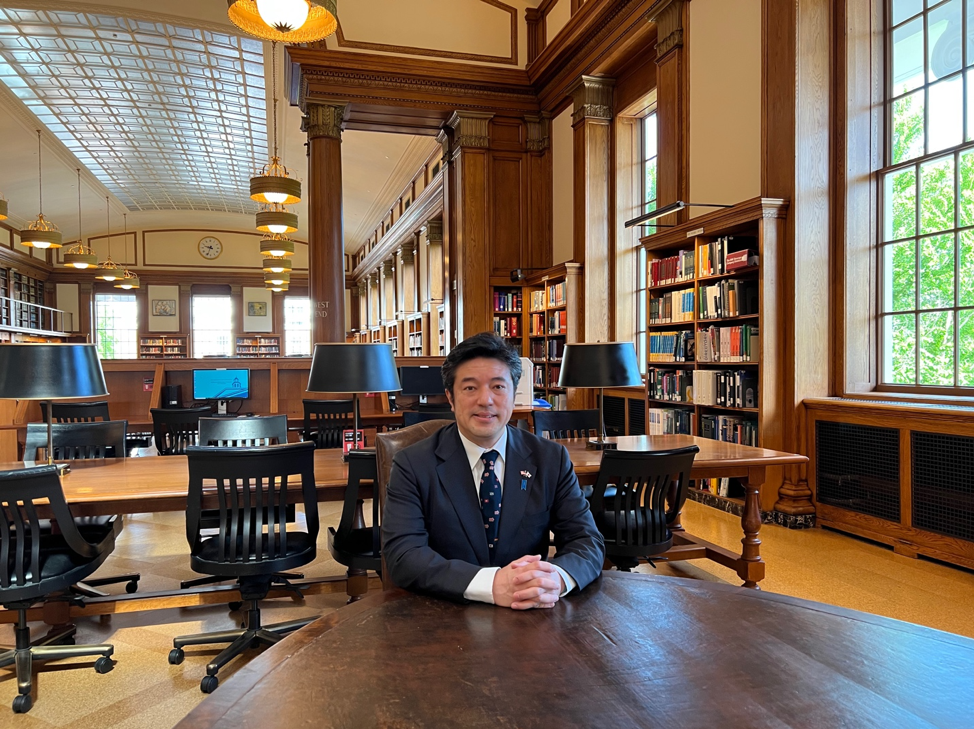
by Editor | May 29, 2022 | Event Updates
The Building the Foundation for the Global Digital Economy Conference (Digital Bretton Woods) is organized by Boston Global Forum, EY, Massachusetts Institute of Technology Connection Science, Prosperity Collaborative, and the World Bank on June 27-29, 2022 at MIT.
Global opportunities and challenges call for global action. The world is far past the Washington-consensus, in search of a new development paradigm. A paradigm that must reconcile national strategies for prosperity with the deepening integration of the world’s economies, driven by the digitalization of communication, commerce, and knowledge. This calls for renewed international cooperation and stronger global institutions.
The Digital Bretton Woods conference responds to this challenge through five themes of reinvention:
- Developing a Growth Strategy in the Digital Economy
- Investing in Digital Infrastructure
- Managing Disruptive Technologies
- Strengthening the Governance of Digital Systems
- AIWS Government for Ukraine
These themes are part of a single continuum of reinvention.
The first theme on growth strategies aims to reconceptualize growth in the digital era, recognizing that the systems of value creation are rapidly evolving, the product cycles shorter, and the policy handles changing. Importantly, digitalization calls for a stronger treasury role in coordinating public investments in digital platforms, leveraging big data for evidence-based policy making, and rethinking the government’s role in promoting innovation.
The second theme recognizes that governments play a critical role in regulating and investing in digital infrastructure, including taxation, trade, digital identity, and payment systems. These foundational systems improve how services are delivered to citizens and enable the creation of new markets and ecosystems in which private-sector firms and other players can compete and collaborate.
The third theme explores the opportunities and risks created by emerging technologies such as Artificial Intelligence, blockchain, quantum computing, and the Internet of Things. These innovations can impact critical infrastructure, transform industries, and redefine the way in which governments interact with their citizens. Consequently, the technologies need to be carefully assessed in terms of their economic and society impacts.
Finally, the development of new digital infrastructure and disruptive technologies call for strengthening governance frameworks to ensure that technology design and implementation, and multi-stakeholder collaboration around technology, are equitable and responsible. These governance challenges go beyond improving information security and privacy control. Core issues center around the delegation of decision making to autonomous systems on economic, legal, and administrative matters; reallocating the ownership of data to individuals and local communities; and the creation of trusted, decentralized information systems that respect privacy while promoting transparency and value creation.
This is a very significant event recognized by the Global Alliance for Digital Governance. At this conference, AIWS Government for Ukraine and AIWS City for Ukraine, as parts of the Rebuilding Ukraine program, will be presented and discussed as a pilot project for these reinventions.
Former State Minister of Defense, Yasuhide Nakayama, the leader of Global Alliance for Digital Governance (GADG) in Japan and Taiwan, and other coordinators of GADG will speak at this event.
























